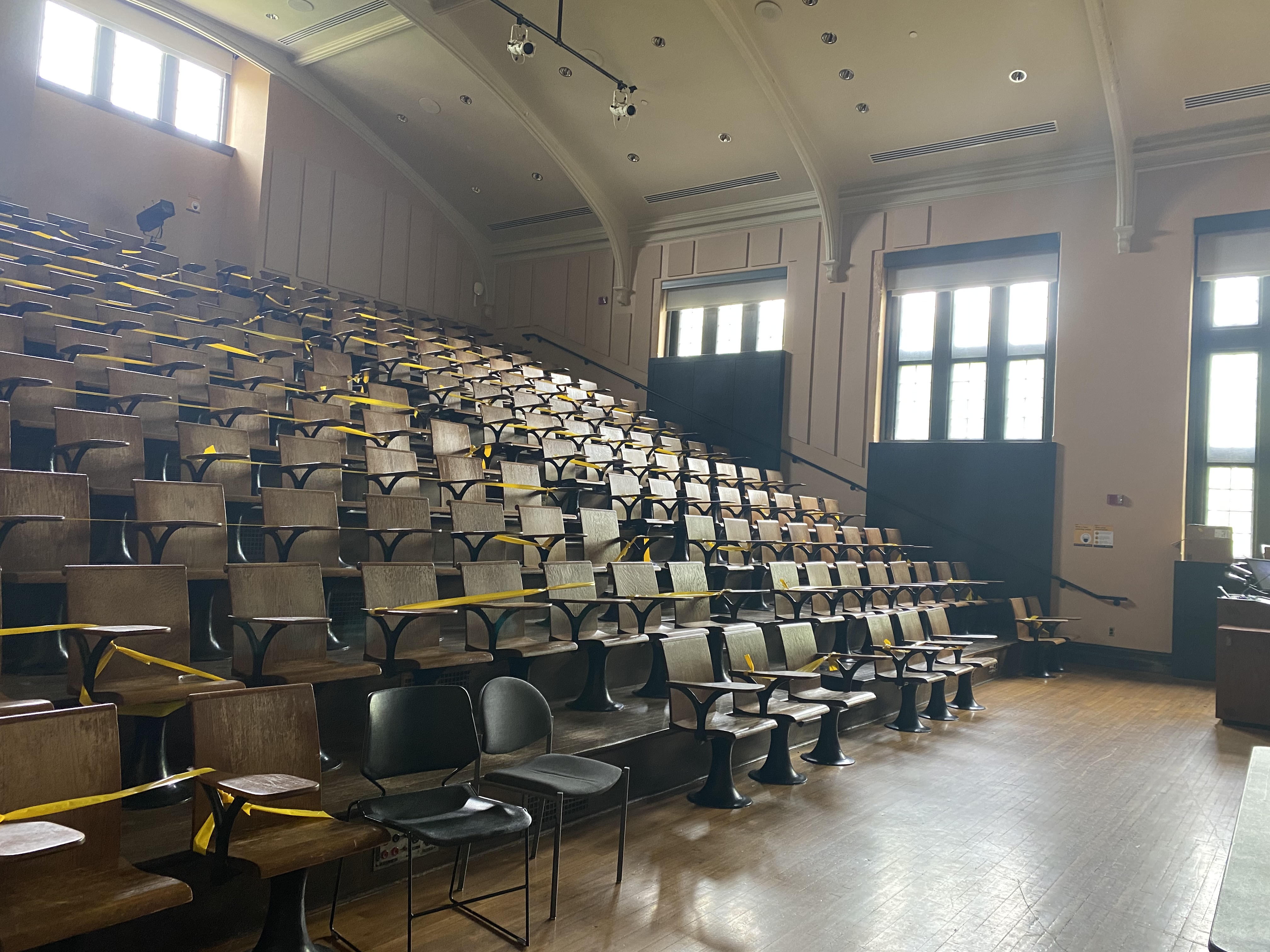Albert Einstein
Though Einstein officially spent 22 years at the Institute for Advanced Study and not tied in any way to Princeton University beyond living and working in the same place, Einstein’s legacy lies throughout the campus and town in honor of not only a university icon, but a global one.
Einstein’s Life, Briefly
Albert Einstein needs next to no introduction. Born on March 14, 1879, in Germany, Einstein became known throughout the world for his work as the most famous theoretical-physicist. As a child, Einstein’s education underwent a number of changes due to his father’s business failures, but eventually he landed at a special high school in Switzerland run by Jost Winteler. After graduation, he was turned down at all academic positions he applied for. Originally ignored, Einstein’s physics papers caught the eye of another world-renowned scientist, Max Planck, and he was offered a series of teaching positions at various universities. Interrupted by the lead up to World War II, Einstein revoked his German citizenship and fled to the United States, landing in Princeton at the Institute for Advanced Study. At this point in his life and career, Einstein had already won a Nobel Prize for his work on the photoelectric effect and was suffering familial troubles with his second wife and son. In 1939, Einstein wrote the infamous letter regarding the creation of the atomic bomb. Having led a complicated and lengthy life, Einstein is survived by his Theory of Relativity and other scientific breakthroughs as well as his family and classroom at Princeton University.
The God Letter
Albert Einstein’s life became more and more public as his career grew and the world often knew of his personal relationships just as his theoretical physics works grew increasingly popular. However, within this specific personal document, Einstein reflects on his relationship with his religion and how it has influenced his life. In one of the last letters written before his death, deemed the God Letter, Einstein stated that he was disenchanted with Judaism and wrote:
“For me the unadulterated Jewish religion is, like all other religions, an incarnation of primitive superstition. And the Jewish people to whom I gladly belong, and in whose mentality I feel profoundly anchored, still for me does not have any different kind of dignity from all other peoples. As far as my experience goes, they are in fact no better than other human groups, even if they are protected from the worst excesses by a lack of power. Otherwise I cannot perceive anything ‘chosen’ about them.”
This quote is a translation taken from a New York Times article. This letter truly evokes a side of Einstein that was hidden behind his genius and public image, allowing the idea of the private sphere within the genre of a letter to truly shine.
“Greatest Scientist Of Century”
If Wilson’s death provoked national mourning, Einstein’s death certainly brought about global mourning. After Einstein’s very early morning death, The Daily Princetonian was able to run a special extra issue the same day. The two-page issue contained an obituary and a handful of tributes from the likes of Princeton and the Institute for Advanced Study colleagues, Princeton President Harold Dodds, and U.S. President Dwight Eisenhower. From this initial issue, it seems like Einstein’s death represented a great loss not only to science but also to something more.
This something more would be better illuminated in The Daily Princetonian’s issue for the day after Einstein’s death. With more time to write and edit since the news of his death initially broke, the first seven out of eight total pages of the issue contained articles about Einstein, and many of these pages were exclusively devoted to him. Throughout all of these articles, Einstein was praised not only for his outstanding contributions to science, but also for his work as a humanitarian and teacher. Still, reading through this issue gives one the sense that Einstein somehow surpassed all these disciplines and achieved something greater — even while still alive — that would cement him a legacy much greater than the sum of all he did. One colleague, describing Einstein’s death, said, “You know how the planets circulate around the sun—and all of a sudden the sun isn’t there anymore.”

Einstein and Princeton
Of the five individuals studied in this project, Einstein is the only one without officials ties to Princeton University since he was actually affiliated with the Institute for Advanced Study. This isn’t to say Einstein didn’t greatly impact the university, as evident in the tributes described just above. However, it may help explain why Einstein isn’t as visibly present on the campus as the other individuals in this topic. On campus, Einstein is primarily remembered through the “Einstein Classroom” located in Frist Campus Center (marked on this project’s Story Map and picture above) which previously served as Palmer Physical Laboratory.
Further Resources
“Albert Einstein - Biography, Education, Discoveries, & Facts - Britannica.” Link.
“Albert Einstein - Historical Society of Princeton.” Link.
“Albert Einstein’s ‘God Letter’ Sells for $2.9m.” BBC News, December 4, 2018, sec. US & Canada. Link.
Barron, James. “Einstein’s ‘God Letter,’ a Viral Missive From 1954.” The New York Times, December 2, 2018, sec. New York. Link.
“Daily Princetonian 19 April 1955 — Princeton Periodicals.” Link.
“Daily Princetonian Extra! Einstein Dies! 18 April 1955 — Princeton Periodicals.” Link.
“Palmer Physical Laboratory (Photo Early 20th Century) - Princetoniana Museum.” Link.
